Hanoi (Vietnamese: Hà Nội), the capital of Vietnam, is a fascinating blend of East and West, with Chinese influence from centuries of dominance, and French design from its colonial past. It is largely unspoiled by modern architecture of the 1970s and 80s, and is now going through a modernization that is making it a rising star in Southeast Asia.
![[Tài liệu thuyết minh] Thuyết minh về thủ đô Hà Nội bằng Tiếng Anh 1 quang cao du lich giua](http://thuyetminhdulich.com/wp-content/uploads/2018/03/quang-cao-du-lich-giua.png)
Invading forces from every direction agree: Hanoi makes a fine capital. It has held that title for more than a thousand years, through several invasions, occupations, restorations, and name changes. The Chinese conquered the imperial city of of Đại La in 1408 and renamed it Tống Bình. Le Loi repelled the invaders in 1428 and applied the name of Lê Thái Tổ; for his efforts, he received the crown and a slew of legends about his heroic exploits, many centered around the Hoan Kiem Lake in the Old Quarter.
The Nguyen Dynasty gave the city its modern name of Ha Noi in 1831, but they had transferred power to Hue by then; it remained there until 1887, when the French made Hanoi the capital of all Indochina. It changed hands again in 1954, when it was ceded to Ho Chi Minh and the Viet Minh after almost a decade of fighting, and it became the capital of North Vietnam; upon reunification in 1975, it assumed that title for the entire country.
The first western-style universities in Vietnam were founded in Hanoi, and today, it is the leading center of scientific study and research in the country. Hanoi retains much of its older colonial charm, despite the battles that have raged over it; conflict had the side effect of making it largely oblivious to modern architecture, and as a result, few buildings in the city center area are higher than five stories. The Old Quarter is second only to Hoi An for uninterrupted stretches of colonial and pre-colonial architecture, well-preserved on dense warrens of narrow, wonderfully atmospheric streets. It trades the commercial boom and sprawl of Ho Chi Minh City in the South for a more understated charm, worth enjoying for an extra day or two, and with countless transport options and travel agents, it makes a perfect base for exploration of the North.
9 interesting museums of Hanoi, Vietnam
- One-Pillar Pagoda – Tucked away between the Ho Chi Minh Mausoleum and Museum. Travelers find the One-Pillar Pagoda either charming and lovely or utterly pointless, depending on how many tour groups are crammed into the small grounds at the time of their visit.
- Fine Arts Museum (Bảo Tàng Mỹ Thuật) – Only party-approved art is shown here and there is no information in English and only little in Vietnamese. But it is an interesting museum at any rate, with pieces such as the wonderful pictures of soldiers on boats depicted on prehistoric bronze drums, Buddhist art, and revolutionary art of the 20th century wars. Also some interesting silk paintings.
66 Nguyen Thai Hoc Street.
- Temple of Literature (Văn Miếu) – The Temple of Literature was founded in 1070 and established as the country’s first university six years later. The courtyard features numerous stone tablets, each mounted on the back of a tortoise, with the names of graduates.
On Quoc Tu Giam St., south of the Mausoleum. - Army Museum (Bảo Tàng Quân Đội), – Vietnam’s military history extends back some two millenniums, and this museum covers it on four buildings with interesting pieces. Item descriptions on museum exhibits are in Vietnamese, French and English. On display outside are the ubiquitous MiG-21 jet fighter, T-54 tank and many bombs and articles captured on Indochina and Vietnam wars.
Dien Bien Phu Street. - Air Force Museum (Bảo Tàng Không Quân) – There’s a decent outdoor collection of Soviet-built MiG fighters, a huge Mi-6 helicopter, and other aircraft; unfortunately they’ve been exposed to the elements for some time and local kids climb over them.
Truong Chinh Street (southwest of the city center). - National Museum of Vietnamese History (Bảo tàng Lịch sử Việt Nam) – This is a collection from Vietnamese history from about 1000 years back until 1945. Many antiques and the such. From 1945 onwards, you can go to the Museum of the Vietnamese Revolution located just a five minute walk away. It is housed in a colonial French building which was completed in 1932. The building, designed by the architect Ernest Hébrard is considered as a successful blend between the colonial French architecture and traditional Vietnamese architecture, called Indochina architecture. He created double-walls and balconies for a natural ventilation system and protection from sunshine.
No. 1, Trang Tien Street. Hours: 8AM-11:30AM and from 1:30PM-4:30PM. - Museum of the Vietnamese Revolution (Bảo tàng Cách mạng Việt Nam) – This museum gives a very informed and detailed account of the Vietnamese struggle against first the French (starting in 1858 — on the first floor), then against the Americans (on the ground floor – ending on 30 April 1975).
25 Tong Dan Street (and 216 Tran Quang Khai Street) Open every day except Monday, from 8AM to 11:45AM and from 1:30PM to 4:15PM. - Museum of Ethnology, (Bao Tang Dan Toc Hoc Viet Nam) – It covers mainly the culture and ritual practices of the various ethnic groups in the whole of Vietnam – one of the key attractions of the museum is the open-air exhibition, which has houses of some ethnic groups, which even comes with inhabitants in costumes. The museum features actual explanations of the exhibits in Vietnamese, French and English. Accessible by bus no. 14 that starts from Hoan Kiem Lake – ask the conductor when to stop, and take a 500 m walk towards the museum (backtrack a little from the bus stop, and when you see a large street perpendicular to the street that you dropped off, take that street and walk down the street until you see the Museum of Ethnology to your left). The Museum of Ethnology houses the excellent Chocolate and Baguettes cafe, which has excellent fare at a reasonable price – an excellent pit-stop after the museum visit. Nguyen Van Huyen St, Cau Giay district. Open every day except Monday, 8:30AM-5:30PM

![[Phú Yên] Hòn Nưa điểm cắm trại tuyệt vời cho mùa hè này [Phú Yên] Hòn Nưa điểm cắm trại tuyệt vời cho mùa hè này](/img/300x200/khampha/2017/03/hon-nua-diem-cam-trai-cho-he-nay-tai-phu-yen-khamphaidisan-5-e1490257010364.jpg)
![[Phú Quốc] Những trải nghiệm nhất định phải thử khi đến du lịch Phú Quốc [Phú Quốc] Những trải nghiệm nhất định phải thử khi đến du lịch Phú Quốc](/img/300x200/khampha/2018/07/nhung-trai-nghiem-thu-vi-tai-phu-quoc-khamphadisan-2.jpg)
![[Hà Giang] Con đường Hạnh phúc – con đường huyền thoại vùng Tây Bắc [Hà Giang] Con đường Hạnh phúc – con đường huyền thoại vùng Tây Bắc](/img/300x200/khampha/2018/07/con-duong-hanh-phuc-khamphadisan.jpg)
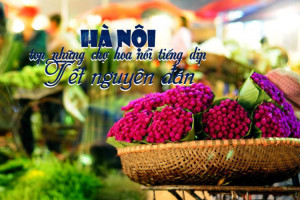
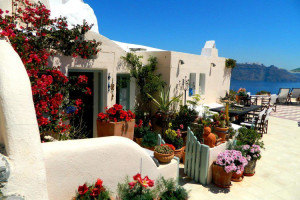
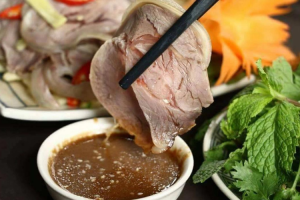

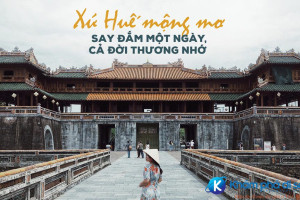
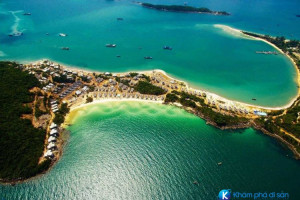
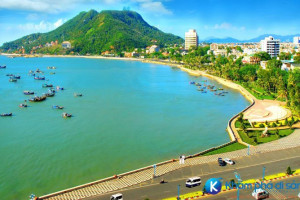
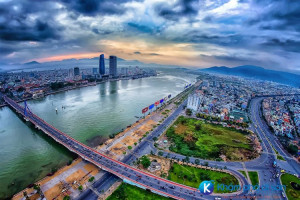


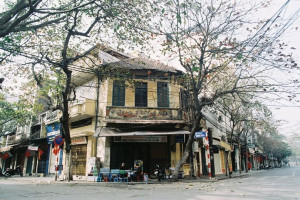
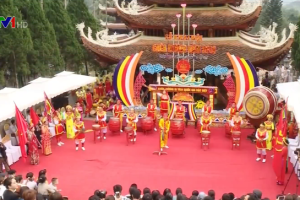






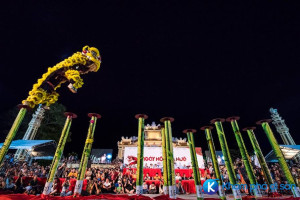
![[Video] Tour du lịch hoàng hôn trên phá Tam Giang – Công ty Du Lịch Đại Bàng [Video] Tour du lịch hoàng hôn trên phá Tam Giang – Công ty Du Lịch Đại Bàng](/img/300x200/khampha/2017/07/canh-dep-tren-pha-tam-giang-2.jpg)